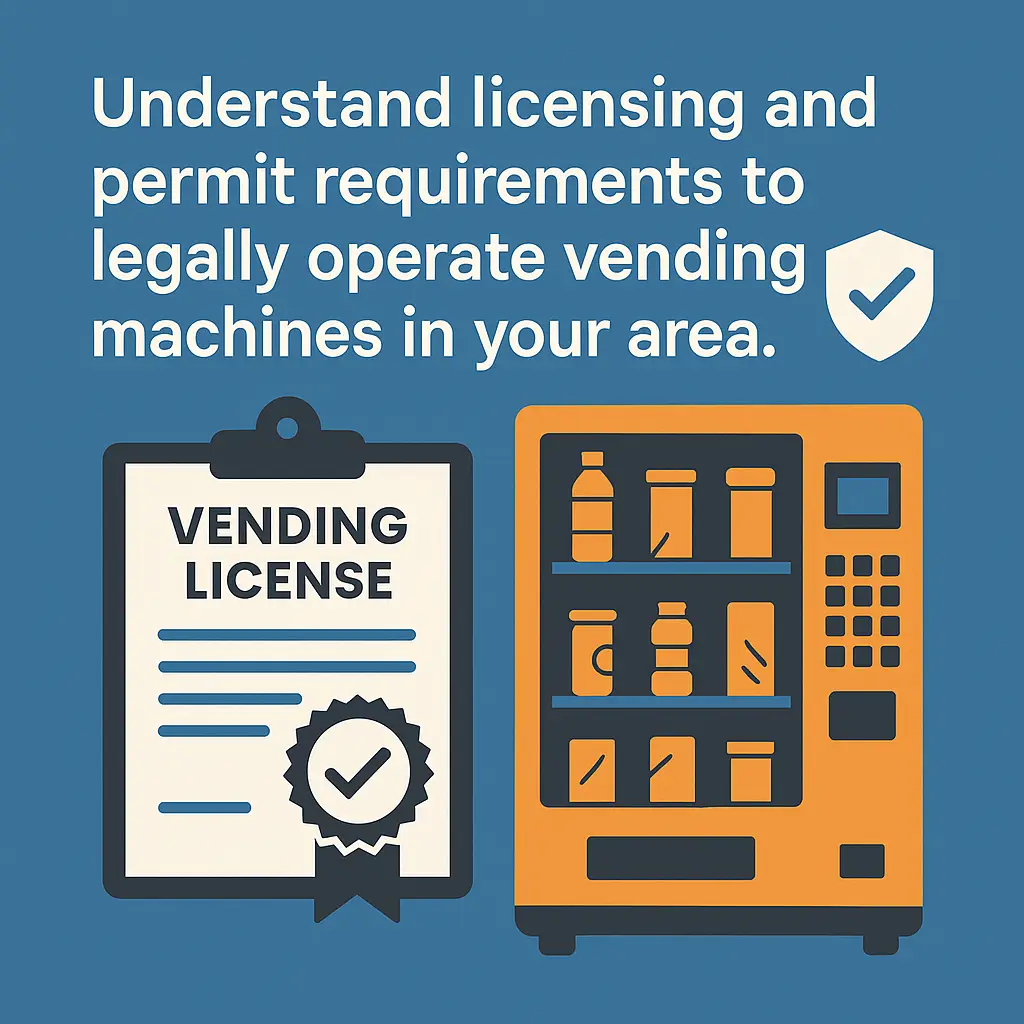Do You Need a License for Vending?
Understand licensing and permit requirements to legally operate vending machines in your area.
Back to Vending for Apartments ResourcesUnderstand licensing and permit requirements to legally operate vending machines in your area.
Back to Vending for Apartments ResourcesStart your 30-day free trial and get instant SMS and email alerts whenever a local business needs vending service. These are real location leads to help you grow your route — you decide which ones to buy, no obligations or contracts.
![]() Some cities require both business and vending-specific licenses
Some cities require both business and vending-specific licenses
![]() Health permits may be needed for food and drink vending
Health permits may be needed for food and drink vending
![]() Tax registration is often required at the state level
Tax registration is often required at the state level
30 days free, then $39 / month.
No Commitment. Cancel Anytime.

Before placing your first vending machine, it's crucial to understand local licensing and permitting requirements. While not every city or state handles vending regulations the same way, most require some form of licensing or business registration. Operating without the appropriate paperwork can result in fines or the forced removal of your equipment—something no aspiring vending operator wants to face.
Generally, you’ll need a basic business license to start. This is issued by your city or county and legally registers your vending company with local authorities. If your machines sell taxable goods, you’ll also need a sales tax permit from your state’s Department of Revenue. This enables you to collect and remit sales tax properly, avoiding audits or penalties.
Many locations require vending-specific licenses as well. For instance, some municipalities demand a separate vending machine permit for each device deployed. Others bundle vending permissions under your general business license. Always check both city and county ordinances; both can impose separate regulations.
If your machines will sell food or beverages, expect additional compliance steps. Some states require a health permit or inspection to ensure machines are operated and stocked according to food safety guidelines. This is especially important if selling perishable items or refrigerated drinks.
Beyond licenses and permits, you might also need to register your business name (DBA) or obtain liability insurance, depending on your local regulations or the property requirements of your placement location. While the startup process may feel overwhelming, documenting each step helps avoid costly missteps.
Staying compliant also improves your chances of securing high-traffic placements. Many property managers will only work with operators who show proof of licensing or insurance coverage. Understanding facility rules upfront can help you avoid the most common deal breakers that get operators rejected.
For help identifying proper requirements, review how Vending Exchange qualifies and matches vendors to local vending opportunities.
Vending Exchange connects vending operators with real businesses actively looking for vending services—including traditional machines, AI coolers, and office coffee. Get instant SMS and email alerts when new opportunities are available in your area. No contracts or monthly fees—just buy the leads you want. Start your free 30-day trial today and grow your vending business on your terms.
Yes, most cities and counties require vending operators to obtain a general business license before placing machines.
You may need a vending-specific license, food permit, or both, depending on your city and product type.
In some areas, each machine must be registered and permitted individually. Check with your local authorities.
Operating without a license may lead to fines, legal action, or removal of your machines by the city.
Yes, most states require vending operators to register for sales tax collection if selling taxable goods.
Yes, most jurisdictions require a health department permit if you're vending food or beverage products.
Yes, licensing requirements vary widely between states, counties, and cities. Always check local regulations.
Absolutely. Fines, machine confiscation, or denial of future permits can result from operating unlawfully.
Start with your city or county business license office, health department, and your state’s department of revenue.
Yes, many property managers require proof of licenses before allowing machine placement on their sites.